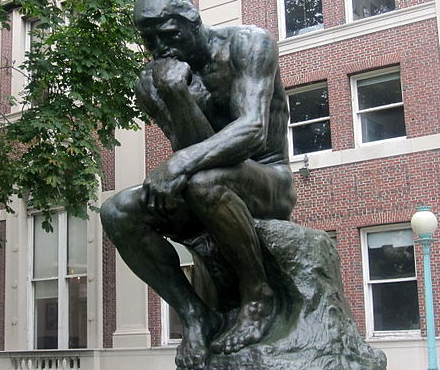Stereotypes about aging
There are two stereotypes in circulation about aging and mental ability – a negative one and a positive one. We associate aging with becoming slower, less ‘on the ball’, and with memory loss. We also may link aging with the idea of wisdom and negotiation skills – useful for many contemporary social problems.
In our arguably youth-centered culture, exercising more cynicism, we may reflect and assume that there will indeed be scientific evidence for the negative stereotype, but – let’s be realistic – not the positive one. We may perhaps assume that the positive stereotype exists just to make older people feel better about their lot. But what we find is that both stereotypes find support. That in some – very important – domains, being older puts a person at an intellectual advantage. Cognition can be better in old age compared to young adulthood and being middle aged.
The evidence is for both gains and losses
There is a substantial body of scientific evidence that indicates that, yes, as we age many of our mental processes become less efficient – notably our fluid intelligence. For this reason, we recommend exercise, nutrition that stimulates neurogenesis (such as creatine), and brain training with HighIQPro that specifically targets the fluid intelligence and short term memory neural circuitry this is most vulnerable to degeneration during aging.
These cognitive declines may be a concern if you’re in your mid-60s plus. But there are important gains that can offset these losses in the overall balance sheet of cognitive abilities. A recent study by Grossmann and his colleagues, published in a prestigious scientific journal – the Proceedings of the National Academy of Sciences – tested the idea that as we age our wisdom improves, in the sense of gaining in the ability to mediate and resolve interpersonal conflicts. To quote from their abstract:
We asked participants to read stories about intergroup conflicts and interpersonal conflicts and predict how these conflicts would unfold. We show that relative to young and middle-aged people, older people make more use of higher-order reasoning schemes that emphasize the need for multiple perspectives, allow for compromise, and recognize the limits of knowledge. Our coding scheme was validated by a group of professional counselors and wisdom researchers. Social reasoning improves with age despite a decline in fluid intelligence. The results suggest that it might be advisable to assign older individuals to key social roles involving legal decisions, counseling, and intergroup negotiations. Furthermore, given the abundance of research on negative effects of aging, this study may help to encourage clinicians to emphasize the inherent strengths associated with aging.
This is a very welcome result. Note that it is a result concerning reasoning ability – an aspect of intelligence – and not just interpersonal relations. It’s genuinely a statement about the quality of thought.
So there is a scientific basis to our culture’s ‘wisdom of age’ cliche. Older people are smarter in dealing with social conflicts. Since social conflicts lie at the heart of our political and social world, this gives a potentially very strong edge for the older – 60 plus – individual.
For more information on the effects of aging on cognition, click here.
Reference
Grossmann, et al (2010), Reasoning about social conflicts improves into old age, PNAS, 2010, 107, (16), 7246-7250. (link)


